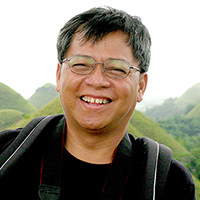

The scathing critique of those who refused to accept the drek that Solita Monsod spewed out against their community was not just merely because of her blatant racism.
The answer also had something to do that they knew Mareng Winnie was not just some smart, ordinary senior citizen living outside communing with the average Pinoy. She was also a professor of economics at the elite University of the Philippines (Diliman), famous for her idiosyncratic teaching style and highly regarded for being one of the authors of the 1984 “white paper” jointly written by professor at the School of Economics that put an academic imprimatur to the argument that the economy was going to the dogs. Everyone who was able to get a copy of “An Analysis of the Philippine Economic Crisis” was convinced that the country was entering the transition to the post-Marcos era
This problem is not, of course, specific to the Monsod alone. The issue raised by Caroline S. Hau and others involves what Monsod appears to shed off – her being an academic. And beyond this is the issue of where pundits really belong in the pundit’s world of opinions.
Commentators – both from the Left and the Right – share this sniggering dislike of academics because they know very little about the world and supposedly only see it from the windows of their ivory tower offices. Their education is so detached from reality that they just add on to their students’ warp knowledge, if not, reinforce their complete ignorance of worldly affairs.
In short, academics are the bearer of false news.
This self-righteousness is not exclusive to the likes of Mocha Uson, RJ Nieto, and Rigoberto Tiglao, two of the foremost defenders of the Duterte (Marcos and Arroyo) administrations. In fact, it was from the leftwing pundit Conrado de Quiros that I first encountered it.
Drawing inspiration from Renato Constantino’s flawed argument, our schools and universities are not the only repositories of knowledge. There are also the streets and real life that could equal if not surpass what one learns in school. True, but also not true.
Of course one gets to know a thing or two about life in the world outside academia. But it is also true that one’s ability to process the worlds one encounter, break these down into their composite pieces, and then analyze their significance (or worthlessness) concerning history and the contemporary setting – all these abilities – are learned inside the classroom.
That is what educating students in these ivory towers is all about.
Schools teach them how to look for data, ascertain their verity, sift through which are relevant and less important, and figure out their relationship to one another. Or put another way, schools impart on students the importance of a library catalog or an Internet database.
More importantly, it is in schools that students are exposed to various tools of analysis, develop in them the ability to choose the best approaches to evaluate phenomena, and then encourage them to make informed decisions about everything – from figuring out how to cure cancer to learning the art of overthrowing dictatorial regimes in the era of social media.
Training ground
Schools and professors do this. There are, of course, autodidacts in the real world whose ideas radically alter the world (the developer of the “Love” virus comes to mind!), but the majority of such talented people got their training in schools.
De Quiros does concede this but also understates the importance of schools as training ground for the development of critical intelligence.
This theme – albeit understated – was what informed the Monsod issue.
When Hau and others responded to Monsod, they were not merely out to destroy her racist opinion. They were also appealing to that side of hers that seems to have been pushed on the wayside: her being an academic.
Their message, roughly paraphrased, was this: “We know you love having a column space and TV slot, two vocations where opinions often prevail over facts. But goodness gracious, you are also an academic, a University of Pennsylvania Wharton School graduate to boot! At the very least apply the academic rigor you learned from the Ivy League school to what you write or say, as people read and listen to what you say! Or putting it another way, be a pundit but also an academic!”
Monsod’s silence after promising a stronger reply to Hau suggested she got the message. And one can perhaps infer this in the “more careful” way in which she laid out the significant points of the latest edition of the Human Development Report.
But what also goes around, comes around. Turning the tables and critically looking at pundits from, well, an academic’s eyes, will also lead us to discover that pundits are even confronted with their own professional ailments.
Reality check for pundits
Except for a few bright minds like Manolo Quezon III, JC Punongbayan, one often notices these two habits of pundits. The first is a tendency to be loose with facts, and worse, to even fall for fake news.
The notorious example of this pitfall is also the total embarrassment that was Yen Makabenta. A Duterte supporter, the columnist, fell for the story that US ambassador to the UN Nikki Haley had enjoined everyone to give President Duterte “the space to run the nation."
When called out for this obvious boo-boo, the fellow preferred silence – perhaps hoping that the furor over his gross mistake would die down.
Alas no – this will forever be preserved in Google’s vast repositories of information. Makabenta will forever be associated with this. I doubt if he will make it to Philippine journalism’s Hall of Fame. – Rappler.com